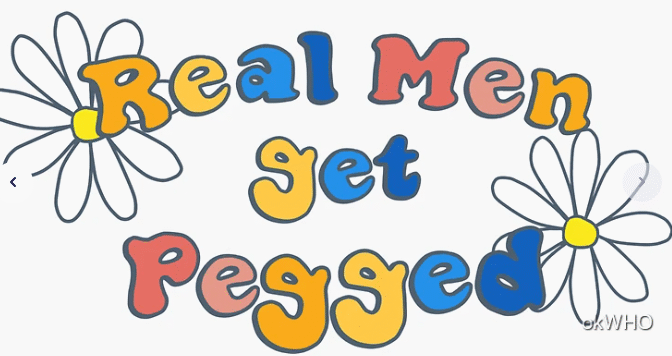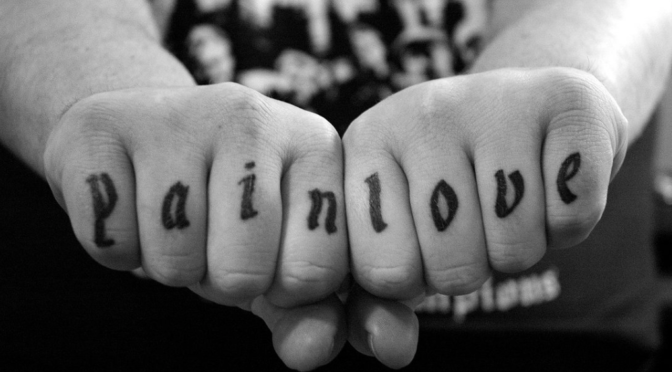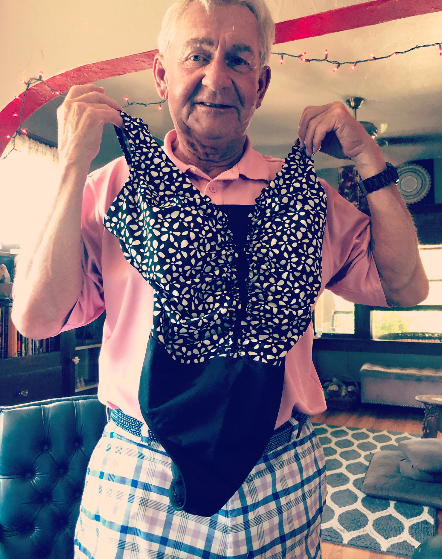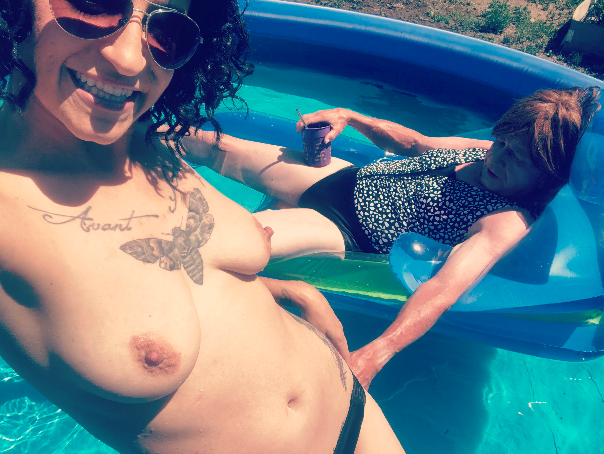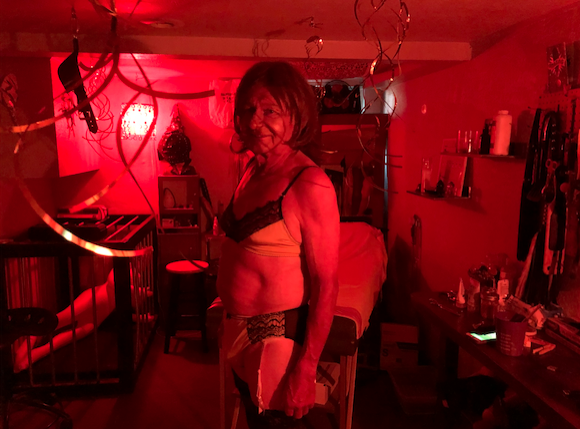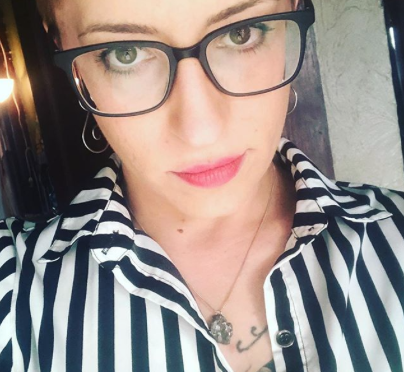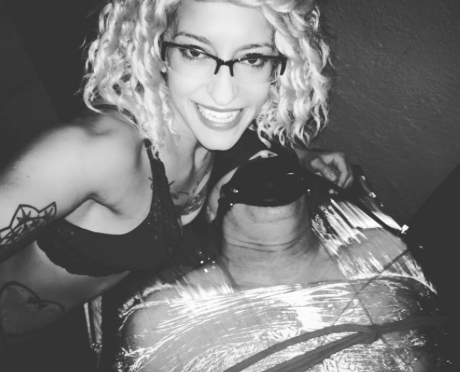BY DOMME DANIELLE
The release of endorphins is the crux of the physiological aspect of BDSM. Endorphins are neurotransmitters that are responsible for nearly all of our physiological and emotional experiences. Our bodies release neurotransmitters all day, but certain activities cause fluctuations that can put us either above or below baseline. Fluctuations in neurotransmitters cause fluctuations in emotions. Without neurotransmitters, we would not eat, sleep, have sex, be motivated, experience emotions, or form human connections, among many other things. To put it simply, pain administered during BDSM sessions causes a response just as pleasure does. It has also been shown that the anticipation of reward and punishment causes a surge of endorphins.[1]Endorphins are also released as a result of the emotional attachment and chemical bond that that occurs between the dominant and the submissive.
When the body experiences pain, chemicals such as serotonin, noradrenaline, and endogenous opioids are released.[2]This rush of endorphins causes feelings of euphoria, elation, and pleasure – or what some might refer to as feeling high. The main neurotransmitter responsible for getting people high is dopamine. Units of dopamine are released during certain activities, with the normal baseline being around 100 units. Sex causes an increase to 200 units; nicotine, 225; morphine, 200; cocaine, 350; and methamphetamines 1,000.[3]
Sub-space is a neurological experience that occurs as a result of the activities in a session. It is the feeling of relaxation, euphoria, and sedation as a result of the flood of endorphins. A similar example would be the feeling a runner gets after he or she has gone on a run. Many submissives engage in play specifically to enter sub-space, and some submissives are unsure as to whether or not they have ever experienced it. Some submissives regard the flood of endorphins as magical or spiritual. Either way, after a session it is important to make sure everyone is safe. A big part responsibility of the dominant is to keep the submissive alive.
A similar experience had by dominants is called top-drop. Top-drop is the crash or fatigue that occurs after an intense psychological or physical scene. For me, top-drop is rarely an occurrence anymore. However, if I have not been playing that often, when I do, I can feel very tired afterward. Dominants need to take care of themselves just as much as submissives do. Having plenty of snacks and water post-play is mandatory.
BDSM practitioners and submissives often form very deep and intense bonds. These bonds occur due to the exchange of trust, love, emotional intimacy, and touch. Oxytocin is the primary neurotransmitter that is responsible for the physiological aspect of connection. It is a hormone that is involved in childbirth and breast-feeding. It is also associated with empathy, trust, sexual activity, and building relationships.[4]
It is entirely possible for BDSM sessions to be cold and disconnected, depending on the players involved and the capacity for each person to access vulnerability. However, due to the fact that I have worked on my attachment trauma from early childhood and have maintained that emotional intimacy be paramount in my professional and personal relationships, it is rare for me to have a disconnected scene. Throughout my career, I have received feedback that clients’ experiences with me have been warmer than their experiences with other providers. Perhaps, it is my desire for emotionally intimacy – or oxytocin – that is to blame.
The relationships formed between dominants and submissives are often long-term, stable, and predictable. They can provide opportunities to deconstruct societal gender expectations surrounding sex and also to teach about boundaries, consent, and communication. More specifically, they can be part of the journey in healing attachment wounds. Attachment disruption occurs in early childhood and is the result of neglect or abuse from our primary attachment figures. When we choose partners as adults, they then become our primary attachment figures, and that is when our childhood wounds tend to surface. These wounds can manifest as being overly attached, codependent, and enmeshed – and they can manifest as avoidance to intimacy, detachment, or ambivalence. Generally, attachment wounds include an inability to express needs and desires, poor self-worth, and a lack of communication skills.
Communication is imperative for creating and maintaining trust in intimate relationships. This probably more true of Dominant/submissive (D/s) relationships. By using D/s relationships to teach or encourage communication, clients can learn to trust and to express their needs. Most importantly, they are taught that as long as they respect the strict boundaries of the dominant, they will not be abandoned, shamed, or rejected for being vulnerable. The absence of shame when responding to the emotional expressions of men is crucial when healing the wounds of patriarchy.
What follows is an account from one of my clients who I met four years ago. I saw him about once a month to every three months up until a year and a half ago. At that point, scheduling conflicts and distance prevented ongoing sessions. My prompt to him was to share his positive and negative experiences with BDSM. The reason that certain words are capitalized when they otherwise would not be is because with D/s protocol, capitalizing words that denote power is seen as a sign of respect. Many submissives derive pleasure from these rules of engagement.
My background was kind of emotionally troubled, which led to my inability to be truly open with myself or other people. It also led to alcoholism and drug addiction. I always had fantasies about being totally dominated and punished and being forced to do sexual things. The problem was that I was unable to allow myself to being vulnerable. After getting clean from my addictions, and working on the inside of my head, I became able and trusting enough to act on my long-held secret fantasies of being dominated by a Mistress.
After beginning my journey with a professional guide, I learned very quickly that BDSM is 90 percent psychological, and 10 percent physical. This is how I kind of break it down anyway. It was a real eye opener for me. The psychological aspect is definitely a key to the outcome. I consider it one of many triggers to be used to drive me, the submissive, deeper into my own psyche. I have discovered that the mind is hands down, by far, the most powerful sexual organ that I have.
When I am led through a BDSM Journey at the able hand of my Mistress, if I allow myself to become completely vulnerable and open, the results are astounding. By getting pushed so deep into my own mind, with the physical torment as part of the driving factor, it is spiritually, and emotionally cleansing for me.
I was raised with a very religious background, which I believe contributed to much of my emotional and addiction issues. I hated myself and was incapable of allowing anybody to get close to me. I believe that allowing myself to be dominated physically, psychologically, and emotionally has been incredibly healthy and helpful to me. I like myself and other people for who they are today. I am capable of being vulnerable in all aspects of my life. I don’t have to try and control everything around me anymore. I understand, respect, and am tolerant of other beliefs and lifestyles. I am truly comfortable in my own skin. This is a huge step from where my addictive mind was before. I can attest that BDSM, if used correctly and professionally, can be therapeutic.[5]
In the following account, we learn about a different BDSM experience. This person came to me after he became aware that his wife had an affair. I think it would be fair to say that he wanted revenge. I had approximately six sessions with him over the span of a year and a half. One of the things he requested happen during the session was to be humiliated and degraded for having, what he deemed, perverse desires. This was not something I was willing to entertain. I prefer to use my sessions to build sex-positivity. However, as a compromise, I punished him for wanting to be shamed.
These days, I feel that BDSM blessed and cursed my life, alternately and concurrently. It was therapy, and I didn’t even know it. Physically, BDSM fulfilled fantasies and a desire for extreme sensations, many of which I could not do with my partner because they made her extremely uncomfortable. I think this gets confusing because it does not necessarily have to do with release (or orgasm).
Emotionally, it gave me what I think was an appropriate and safe venue to explore shame, fear, and anger, as it related to my childhood and religious upbringing. I also did not know that I was looking for that safe place at the beginning. I know it did help me to cope with the anger, sense of loss, and jealousy that arose upon the discovery of my wife’s affair. At that point, I also believe it saved my life, because I’d become depressed and was having suicidal thoughts. My experience with BDSM is that it supplies a surprisingly arena for self-awareness to go as deep as you care to go into your emotions.
However, as someone who suffers from low self esteem, I also discovered that I could use BDSM to reinforce negative opinions of myself. This wasn’t the case in the beginning, as it felt incredibly freeing. On the up side, it was through BDSM that I discovered I was tearing down self-esteem every day without realizing it – kind of practicing self-assassination.
Spiritually, the jury is still out. There are symbols and roles that I accept as being artistically and spiritually significant to me in BDSM. I believe that BDSM connects and dovetails with Christianity, and that it has expanded my awareness of spiritual relationships, but what it means is currently shifting. I think about that all the time.
Finally, politically, being a BDSM client is not comfortable for me right now. You, Nicole, made me aware of the fact that the fantasy of female domination is predicated on a belief that women are inferior, and that it hinges on privilege. I find that repugnant, but I’ve been thinking about it a lot; about underlying assumptions that are unhealthy and not at all useful. What BDSM did for me was open my mind. At least, I hope it has.[6]
Although the psychological aspects of BDSM are monumental, sensation play also possesses its own unique set of purposes. One example is how sensations can be used as a pivoting point for working with painful emotions. Primarily, this occurs by bringing people to heightened emotional or physical states and then mindfully working with the responses to such states. This is an effective manner in which to reveal habitual tendencies to stimuli and to increases awareness surrounding reactions to pain or pleasure. By providing stimuli to submissives and instructing them to maintain relaxed and receptive states, they can learn that expectations, tightening, and fear can actually cause a magnified response to stimuli.
Sensation play can also be used as an opportunity to teach about impermanence and emotional acceptance. When stimuli are given in a controlled manner, submissives learn that physical or emotional sensations are temporary and about the dichotomous relationship between pain and pleasure. When submissives are given permission, encouraged, or even instructed to allow emotions to arise as a result of sensation, they are able to learn emotional intelligence and acceptance. Personally, I use sensations to challenge my clients – who are primarily male – to get to a space where they feel emotion. In a session, men are given permission to feel anything, and that is part of the healing process.
[1]Charles Adams, Grace M. Fong, Daniel Hommer, Brian Knutson, “Anticipation of Increasing Monetary Reward Selectively Recruits Nucleus Accumbens,” The Journal of Neuroscience, No. 21 (2001): 2. https://pdfs.semanticscholar.org/ef88/c4889561a36202297c9ff792925b2342baa3.pdf?_ga=2.78573907.655450162.1543366100-353552470.1543366100.
[2]Armando Hasudungan, “PAIN! Physiology – The Ascending Pathway, Descending Pain Pathway and the Substantia Gelatinosa,” YouTube Video, posted by “Armando Hasudungan,” April 16, 2018, https://www.youtube.com/watch?v=5c8maFAhqIc&t=264s.
[3]Chiara, Effects of Drugs on Dopamine Release, 1988, http://www.supajam.com/news/story/Levels-of-dopamine-that-you-get-from-food-sex-and-drugs-compared.
[4]Markus MacGill, “What is the Link Between Love and Oxytocin,” Medical News Today, September 4 2017, https://www.medicalnewstoday.com/articles/275795.php
[5]BDSM Client 1, email message to author, November 26, 2018.
[6]Client 2, email message to author, November 28, 2018.

